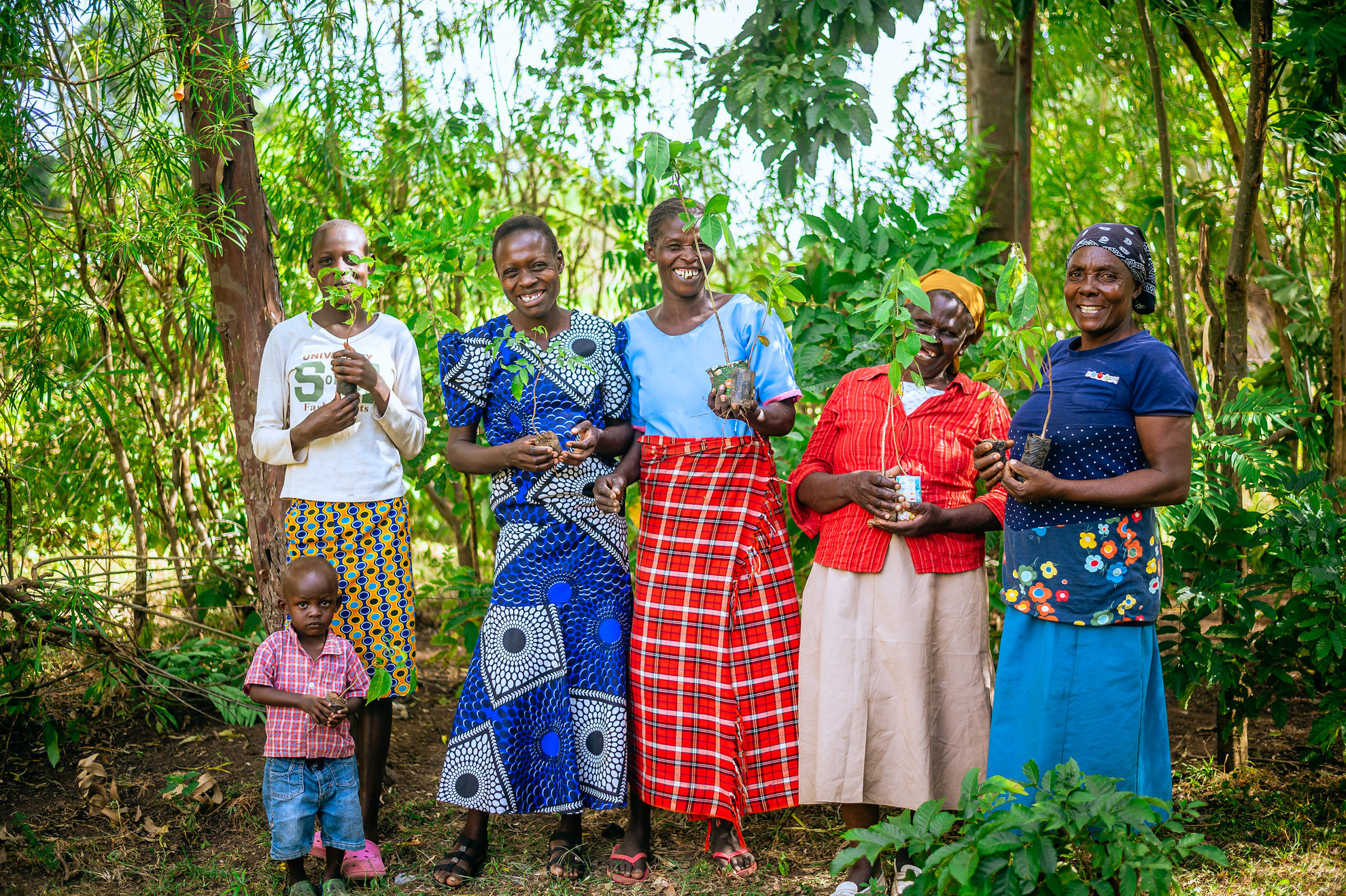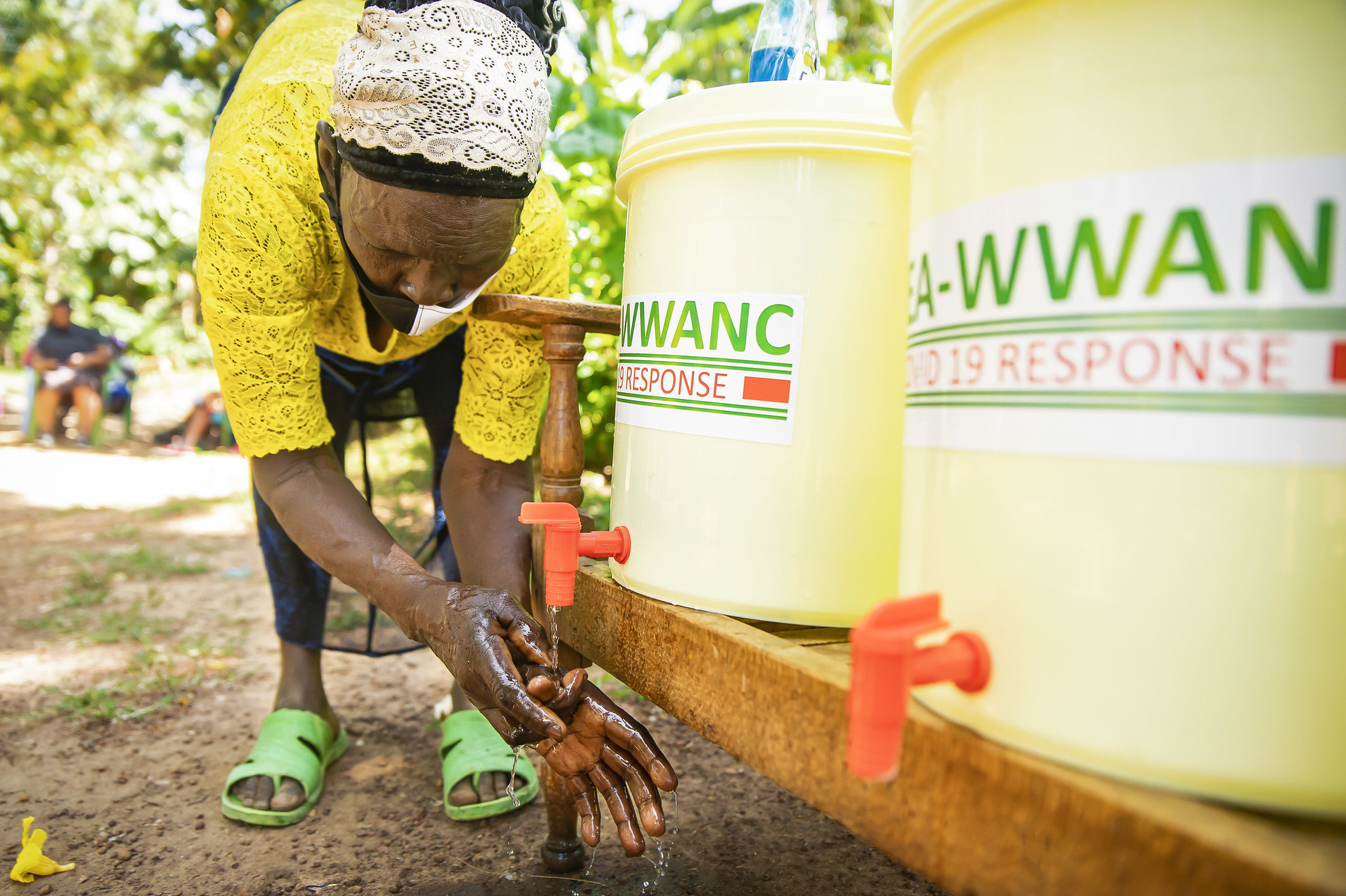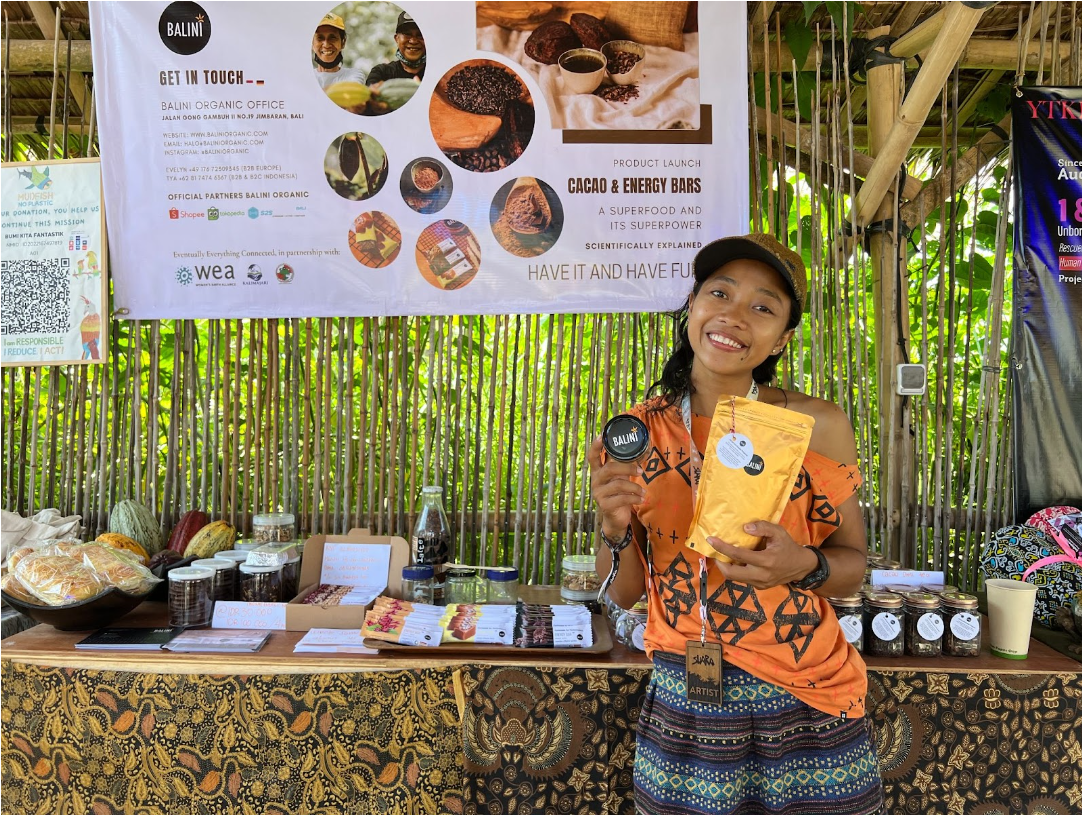Grassroots initiatives, global impacts
This International Women’s Day, we’re celebrating the transformative power of grassroots women-led solutions to create global impact and ensure a just and sustainable future.

At Women’s Earth Alliance, we see that it’s not top-down approaches that will transform our climate. It is from the ground up: one seed, one tree, one woman at a time.
One becomes 10, becomes 1,000, becomes a million, and on and on.
The grassroots women leaders in WEA’s global alliance are protecting our dwindling water sources, advocating for clean energy solutions, preserving indigenous seeds key to our survival, and modeling the small-scale regenerative farming practices that will feed our planet. They are winning political positions, building movements, expanding economic opportunities, and passing on their knowledge to other leaders.

Why grassroots? Why women?
Women are disproportionately impacted by the climate crisis, environmental violence, and ecosystem destruction, which means they are also uniquely positioned to develop and implement solutions to the environmental and climate challenges they—we—face.
In fact, it is globally recognized that women’s leadership is one of the greatest leverage points we have for increasing our collective climate resilience. Yet women face deep, structural inequities that rob them of their full potential to take action. Not only are women underrepresented in national and global climate negotiations, but community-based, grassroots women’s work is also often siloed—meaning it does not benefit from the coordination, global learnings, and networks available to larger-scale initiatives. And currently, only 0.2% of philanthropic funds go to women-led environmental solutions.
WEA is working to close that gap, because we know that the shift toward a more sustainable world needs to occur on a global scale, and this change requires actions be initiated and supported at the local level. And, because we know that climate initiatives led by rural and grassroots women are essential to generating systems-level change in pursuit of a more sustainable and just world.
When grassroots women leaders are equipped with tools, resources, and networks that enable them to take action to prevent environmental destruction and build healthier and more climate resilient communities, real transformation takes root.
Effective solutions grow from local, community-based knowledge
Community leaders are best positioned to truly understand the problems they seek to address, and to design and implement solutions grounded in a deeper awareness of the systemic forces and cultural context at play. As a result, grassroots and community-led climate initiatives like WEA’s Women and Forests Accelerators often result in more effective, equitable, and scalable solutions than top-down efforts.
From the Grassroots: Saving Kenya’s last tropical rainforest
Ground-up efforts are more responsive to emergent needs
As evidenced in the wake of the COVID-19 pandemic, the Ebola epidemic in West Africa, or recent hurricanes in Puerto Rico—national and international organizations and governing bodies are often unable to provide timely, coordinated, and equitable responses to major crises. Time and time again, local and grassroots organizations have proven to be more capable of mobilizing quickly and efficiently to provide on-the-ground aid and assistance to communities in need of immediate support.
From the Grassroots: Seeing communities through the COVID-19 crisis

When COVID-19 hit Kakamega, Kenya, most people WEA Leader Fatuma Erima knew lost their jobs, and many families struggled in the precarious economic situation caused by the pandemic. Fatuma was eager to mobilize in support of her community, and through WEA’s hands-on skill building, networking, mentorship and funding, she launched a tree nursery and tree planting initiative, and trained other women to do the same. She has now trained 520+ people to grow and sell tree saplings, grow trees, and make and sell clean cookstoves and briquettes. In addition to increased economic security and household financial stability, Fatuma has seen many other significant changes in her community since launching her grassroots eco-enterprise, including reduced deforestation, less gender-based violence, more women’s leadership, and improved family health and wellbeing.

In Indonesia, WEA and Pratisara Bumi Foundation’s RuCLER Accelerator Program also responds to the devastating economic impacts women leaders and their communities continue to face in the wake of COVID-19. The 2-year program works in 11 rural areas in Indonesia to revive and accelerate eco-enterprises, introduce nature-based solutions, stimulate the local economy, and empower the work of women entrepreneurs who are generating economic prosperity, protecting the climate, and creating healthy, safe, and equitable communities.
Throughout our worldwide alliance, there are countless stories of women leaders stepping up to meet the challenges their communities face: a testament to how grassroots, women-led initiatives that start out as small seeds in local communities can grow into widespread movements that connect people and create change on regional, national, and global scales.
Celebrating WEA's Grassroots Leaders
On International Women’s Day and every day, WEA celebrates our worldwide alliance of grassroots women leaders working to scale and coordinate their nature-based solutions. But ensuring their solutions can ripple out far and wide—protecting our environment, ending the climate crisis, and building a just, thriving world for generations to come—will take all of us.
We know that we can provide women at the edge of Kenya’s last rainforest with the training they need to protect and regenerate hectares upon hectares of critical ecosystems. We can ensure leaders like Fatuma can be courageous and nimble, immediately mobilizing to respond to every crisis our communities face. And we can reimagine local economies through the eyes of women eco-entrepreneurs in Indonesia who are building community resilience while reviving a reciprocal relationship to the natural world.
We can do all of this and more—starting at the grassroots.

One day, the climate crisis will be a thing of the past. Our monthly giving community, the Seed Bank, is how we can all say we were a part of supporting the grassroots solutions that made a difference. Just $50 helps 300 people access women-led climate solutions like regenerative agriculture, forest protection and clean energy.
